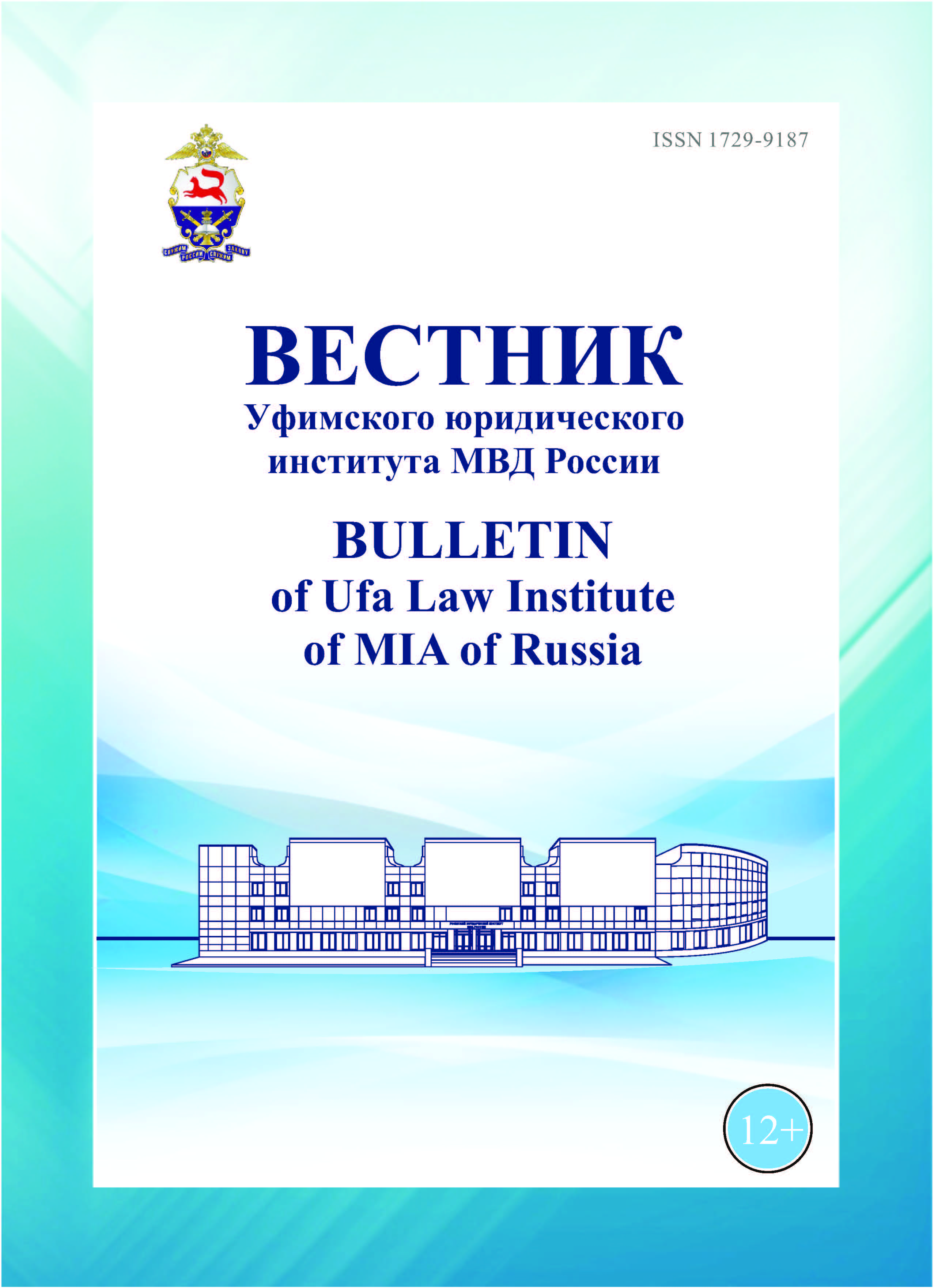Russian Federation
Russian Federation
VAK Russia 5.8.7
UDC 378
The article discusses the theoretical features of problem-oriented learning and aspects of the use of a project-oriented approach in the training of novice teachers in the educational organizations of the Ministry of Internal Affairs of Russia. The views of scientists on the development of problem-oriented learning are shown, thanks to which the project method was adopted both abroad and in Russia. The authors point out that it is project-oriented training that is important in the structure of professional retraining of a higher school teacher. It is noted that the beginning teacher will benefit from scientific and project knowledge in pedagogical activity. The practice of implementing the program of additional professional education of professional retraining «School of Pedagogical Excellence» at the St. Petersburg University of the Ministry of Internal Affairs of Russia on the basis of modern educational technologies is described.
problem-oriented learning, problem-based learning method, project method, research method, project competence, innovation activity
1. Pozdeeva S. I. Problemnoe i problemno-orientirovannoe obuchenie (Problem-Based Learning): sravnitel'nyy analiz // Sibirskiy pedagogicheskiy zhurnal. 2016. № 2. S. 95–99.
2. Finkle S. L., & Torp L. Introductory documents. Available from the Centre for Problem-Based Learning, Illinois Math and Science Academy, 1995.
3. Barrows H. S, Tamblyn R. M. Problem-Based Learning: An Approach to Medical Education. 1980, New York, Springer Publishing Co. P. 19–36.
4. Mahmutov M. I. Izbrannye trudy: v 7 t. Kazan': Magarif-Vakyt, 2016. T. 1: Problemnoe obuchenie: Osnovnye voprosy teorii / sost. D. M. Shakirova. 423 s.
5. Ushinskiy K. D. Voskresnye shkoly. Sobr. soch. T. 2. M.; L., 1948.
6. Kapterev P. F. Izbrannye pedagogicheskie sochineniya / pod red M. A. Arsen'eva. M.: Pedagogika, 1982. 702 s.
7. Rubinshteyn S. L. Osnovy obschey psihologii. SPb: Piter, 2015. 705 s.
8. Problemnoe obuchenie: proshloe, nastoyaschee, buduschee: kollektivnaya monografiya: v 3 kn. / pod red. E. V. Kovalevskoy. Kniga 1: Lingvo-pedagogicheskie kategorii problemnogo obucheniya. Nizhnevartovsk: Izd-vo Nizhnevart. gumanit. un-ta, 2010. 300 s.
9. Mohort A. V. Tehnologiya problemnogo obucheniya i metodicheskie priemy sozdaniya problemnyh situaciy v processe obucheniya // Ekonomika i socium. 2020. № 3 (70). S. 409–413.
10. Iedema R. Multimodality, resemiotization: Extending the analysis of discourse as multisemiotic practice. Visual Communication. 2003. № 2. P. 29–57.
11. Scholz K.W. and Anderson S. Problem-Based Learning: A White Paper & Primer, 2018. R. 1–22.
12. Jørgensen, Kenneth & Strand, Anete & Thomassen, Anja. Conceptual Bases of Problem-based Learning. 2012. № 28.
13. Astaf'ev N. V., Ovchinnikov V. A., Lyskova M. I. Dopolnitel'noe professional'noe obrazovanie lic, vpervye naznachennyh na dolzhnosti pedagogicheskih rabotnikov obrazovatel'nyh organizaciy MVD Rossii // Pravo i Obrazovanie. 2020. № 7. S. 90–96.
14. Gaydar K. M., Kunakovskaya L. A., Listengarten V. S. Pedagogika vysshey shkoly v deystvii (opyt realizacii programmy professional'noy perepodgotovki «Prepodavatel' vysshey shkoly») // Vestnik VGU. Seriya: Problemy vysshego obrazovaniya. 2022. № 2. S. 34–37.
15. Hung W. The 9-step problem design process for problem-based learning: Application of the 3C3R model. Educational Research Review. 2009. № 4 (2). P. 118–141.
16. Savel'ev A. Ya. Innovacionnoe obrazovanie i nauchnye shkoly // Vestnik vysshey shkoly. 2000. № 3. S. 15–18.
17. Lavrent'ev G. V. Innovacionnye obuchayuschie tehnologii v professional'noy podgotovke specialistov / G. V. Lavrent'ev, N. B. Lavrent'eva, N. A. Neudahina. Ch. 2. Barnaul: Izd-vo Alt. un-ta, 2002. 232 s.
18. Klarin M. V. Innovacii v mirovoy pedagogike: obuchenie na osnove issledovaniya, igry i diskussii. (Analiz zarubezhnogo opyta). Riga, NPC «Eksperiment», 1995. 176 s.
19. Bell S. Project-based learning for the 21st century: Skills for the future. The Clearing House: A Journal of Educational Strategies, Issues and Ideas. 2010. № 83 (2). P. 39–43.
20. Gergert D. V., Artem'ev D. G. Praktika vnedreniya proektno-orientirovannogo obucheniya v vuze // Universitetskoe upravlenie: praktika i analiz. 2019. T. 23. № 4. S. 116–131.
21. Blumenfeld P. C., Soloway E., Marx R. W., Krajcik J. S., Guzdial M., Palincsar A. Motivating Project-Based Learning: Sustaining the Doing, Supporting the Learning // Educational Psychologist. 1991. Vol. 26. № 3/4. P. 369.
22. Kazun A. P., Pastuhova L. S. Praktiki primeneniya proektnogo metoda obucheniya: opyt raznyh stran // Obrazovanie i nauka. 2018. T. 20. № 2. S. 32–59.
23. Nimirovskaya Yu. K. Proektnaya tehnologiya v obrazovatel'noy sisteme vysshey shkoly // Metody i mehanizmy realizacii kompetentnostnogo podhoda v psihologii i pedagogike: sbornik statey Mezhdunarodnoy nauchno-prakticheskoy konferencii 1 dekabrya 2009 g. Voronezh, 2009. S. 97–101.










